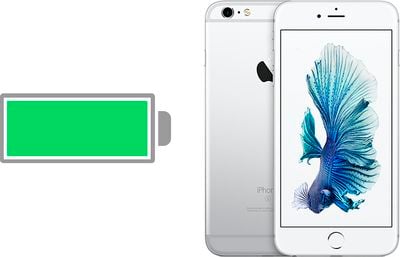Apple has agreed to pay up to $500 million to settle a long-running class action lawsuit in the United States that accused the company of "secretly throttling" older iPhone models, as reported by Reuters.
Each affected iPhone user in the class would receive $25, according to the preliminary settlement, reviewed by MacRumors. The amount could increase or decrease slightly depending on legal fees and the aggregate value of approved claims, with Apple's total payout to fall between $310 million and $500 million.

The class includes all former or current U.S. owners of the iPhone 6, 6 Plus, 6s, 6s Plus, 7, 7 Plus, and SE running iOS 10.2.1 or later (for the iPhone 6, 6 Plus, 6s, 6s Plus, and SE) or iOS 11.2 or later (for the iPhone 7 and 7 Plus), and who ran these iOS versions before December 21, 2017.
Apple has maintained no legal wrongdoing despite agreeing to the settlement. U.S. federal judge Edward J. Davila is expected to preliminarily approve the proposed settlement on April 3, 2020.
The class action lawsuit was filed in December 2017, after Apple revealed that it throttles the maximum performance of some older iPhone models with chemically aged batteries when necessary in order to prevent the devices from unexpectedly shutting down. The complaint called it "one of the largest consumer frauds in history."
Apple introduced a performance management system in iOS 10.2.1, but it did not initially mention the change in the update's release notes. Likewise, in a statement issued a month later, Apple still only mentioned vague "improvements" resulting in a significant reduction in unexpected iPhone shutdowns.
Apple only revealed exactly what the so-called "improvements" were after Primate Labs founder John Poole visualized that some iPhone 6s and iPhone 7 devices suddenly had lower benchmark scores starting with iOS 10.2.1 and iOS 11.2 respectively, despite operating at maximum performance on previous versions.
Apple apologized for its lack of communication in December 2017, and reduced the price of battery replacements to $29 for iPhone 6 and newer through the end of 2018. Apple then released iOS 11.3 with a new feature that enables users to track their iPhone battery's health and performance status.
The performance management system has also been disabled by default since iOS 11.3, and it is only enabled if an iPhone suffers an unexpected shutdown. The performance management can be manually disabled by users as well.























